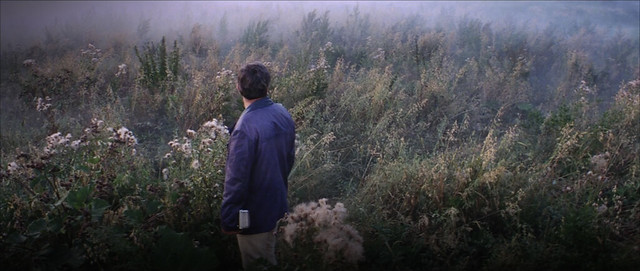

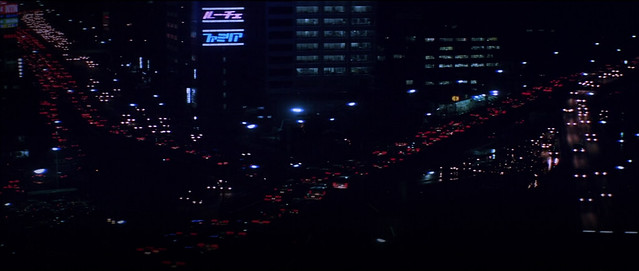


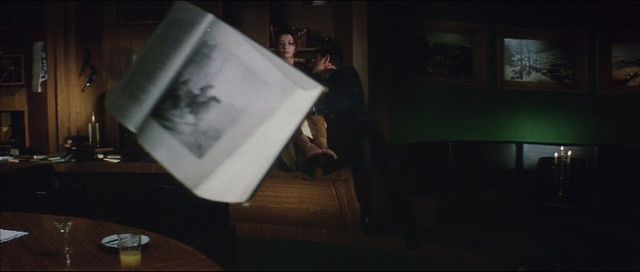
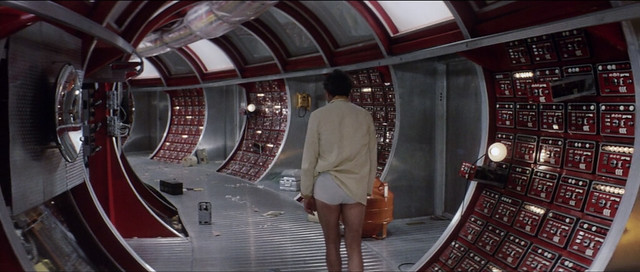
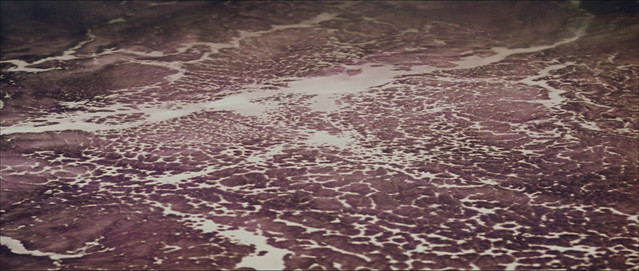
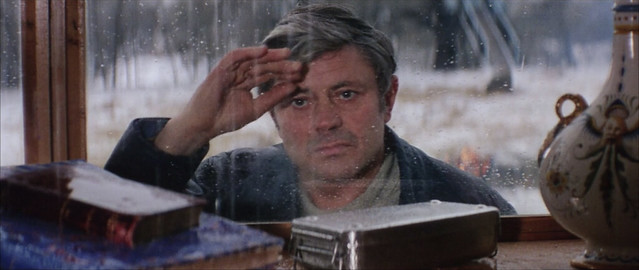 Kelvin (Donatas Banionis) is tasked to go to a space station orbiting an ocean planet Solaris, to check on its remaining crew and determine if their probing mission is still valid. During the briefing, Burton, a former cosmonaut in the station, reports strange phenomenon going on, on the surface of Solaris, that the planet generates physical manifestations from the crew's memories. Once he gets there, he finds only 2 crew members still remaining: Snaut (Jüri Järvet) and Satorius (Anatli Solnitsyn) and the body of Gibarian who just killed himself and left Kelvin a taped message warning him about the 'visitors' that Solaris sends out. Soon enough, Kelvin's dead wife Hari (Natalia Bondachuk) turns up in front of him and any of his scientific research is out the door. Is she just a manifestations conjure up from Kelvin's memories of her? It doesn't matter to him. It is Hari and he will love her. But she begins to doubt her existence. She kills herself by drinking liquid oxygen only to be violently revived.
Kelvin (Donatas Banionis) is tasked to go to a space station orbiting an ocean planet Solaris, to check on its remaining crew and determine if their probing mission is still valid. During the briefing, Burton, a former cosmonaut in the station, reports strange phenomenon going on, on the surface of Solaris, that the planet generates physical manifestations from the crew's memories. Once he gets there, he finds only 2 crew members still remaining: Snaut (Jüri Järvet) and Satorius (Anatli Solnitsyn) and the body of Gibarian who just killed himself and left Kelvin a taped message warning him about the 'visitors' that Solaris sends out. Soon enough, Kelvin's dead wife Hari (Natalia Bondachuk) turns up in front of him and any of his scientific research is out the door. Is she just a manifestations conjure up from Kelvin's memories of her? It doesn't matter to him. It is Hari and he will love her. But she begins to doubt her existence. She kills herself by drinking liquid oxygen only to be violently revived.
'Sculpting time' seems very appropriate in Solaris than any other film I can think of. With the series of long shots with slow zooms where actors quickly change their places around just outside the frame to take different positions within (and using multiple stand-ins in some cases), and repetition of images (in the beginning then later on), Tarkovsky invites audience to experience past, present and future at the same time. Loosely connected images such as reeds in the water and Tokyo traffic are just as striking as the famous bone to space ship transition cut in 2001 Space Odyssey but with more time devoted to percolate naturally in viewer's mind instead of visible edits. There are many notable scenes, but the most striking is perhaps Hari contemplating time, while watching Bruegel's Hunters in the Snow in the library of the station and them briefly experiencing weightlessness in embrace. Time is highly subjective so are our perceptions of the world.
Memories, dreams and fantasies all mingle in Solaris. How much do we know about other people? Is our existence just compounded memories of others? Tarkovsky is using the Sci-fi genre as a fodder to question our reality and contemplate human existence in perhaps the loneliest place we can imagine- outer space. Solaris is a deeply humbling experience.